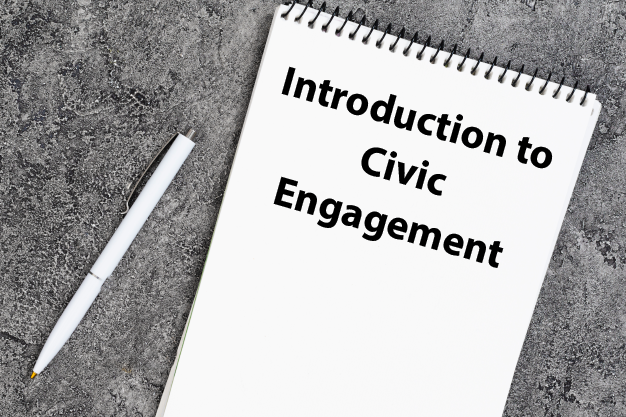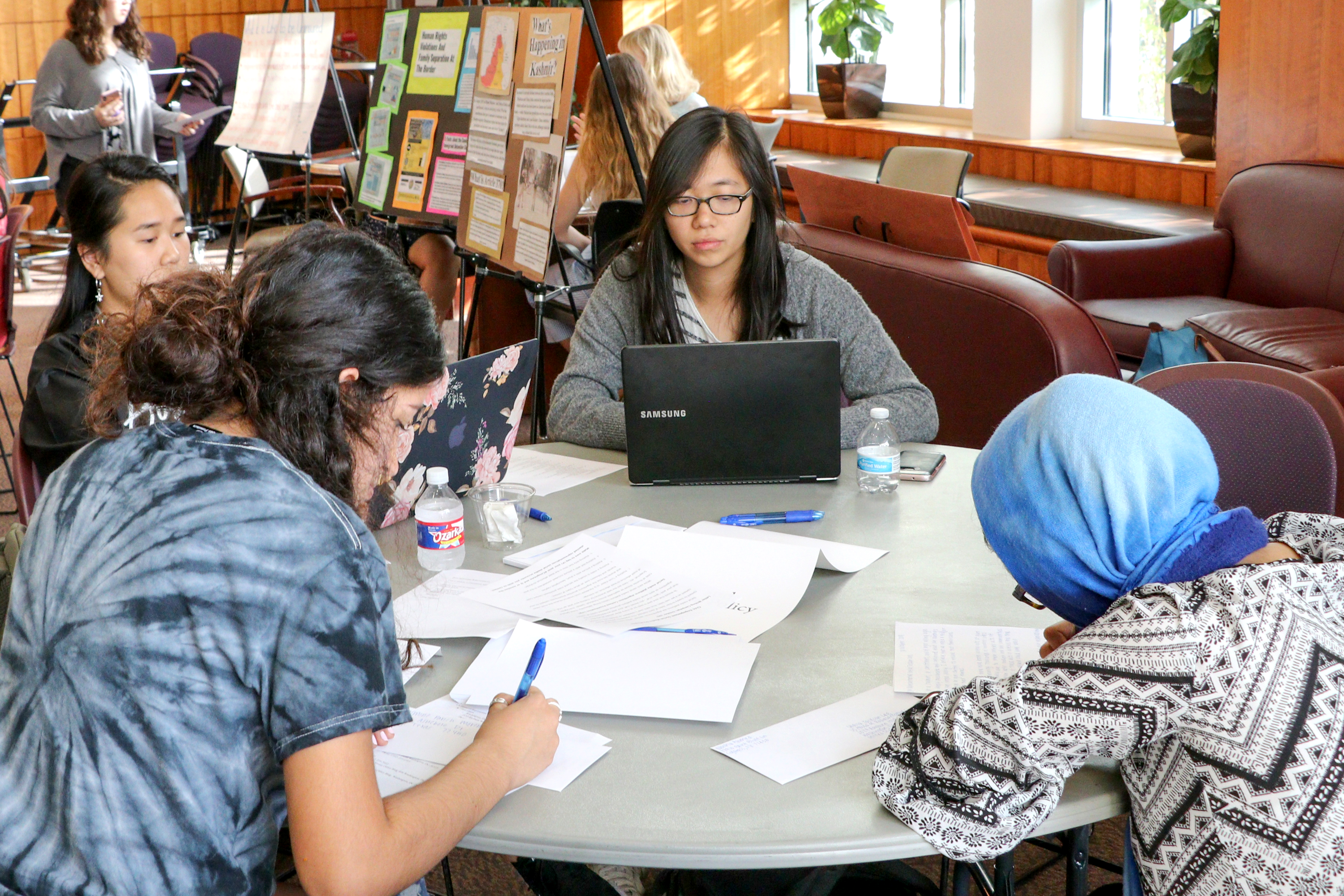
Civic Engagement
Civic Engagement at the University of Houston
Civic engagement means working alone or together to address issues of public concern. It means promoting the quality of life in a community, through both political and non-political processes. By engaging in public issues, you can make a difference in the civic life of our communities and government. Being involved helps you develop a combination of knowledge, skills, values and motivation to make a difference. The two programs designed to improve civic engagement are Citizenship Learning, where we help UH students, faculty, staff and their families become citizens, and Civic Participation, where we participate in a letter writing campaign to elected and unelected officials, community leaders and non-profits to share our educated views on specific issues as well as a Get Out the Vote Campaign where we help students register to vote.

Change! Social Advocacy in Action (HON4397)
This Honors class is taught in the Spring semester and is available only to Honors students.
Social action occurs when everyday people band together to develop their power in order to change policy, whether on their campuses or in their neighborhoods and communities. Advocacy and action have played crucial roles throughout America’s ever- evolving experiment in democracy. This course explores your power and our democracy, both of which are central to “social action” and to creating the next generation of democratic citizens and leaders. We will examine the topics of issue development (for example, healthcare access, environmental justice, or a campus issue, to name just three), change theory, building power, and strategy tactics, as well as campaign planning and implementation. What is unique about this course is that, based on the experiential social action model, students DO social action rather than just learn about it; students choose their issues and lead campaigns for change. They are thereby transformed through their direct experience with democracy.
For more information, contact Janet Lawler

Introduction to Civic Engagement (HON3331)
This Honors class is taught in the Fall semester and is available only to Honors students.
What does it mean to civically engage? What is community and which ones am I a part of? How do I change the world? This course is designed to empower you to chase and answer these questions. You will leave with the confidence, bravery, knowledge and skills to become fully engaged members of your communities, at every level. You will learn more about yourself by exploring what you want and what your community needs. We will work through the ideas and history that created civic engagement. We’ll consider moral, social, and political justifications for why civic engagement is critical to developing your individuality and strengthening our democracy. All of this will prepare you to practice some engagement of your own, both formally and informally. You’ll leave with your own project proposal, which we workshop together from researching an initial idea, to learning from your community members, to developing a plan.
For more information, contact Janet Lawler
Citizenship Learning
Citizenship is fundamental to our system of government, but not everyone living in the United States is born a U.S. citizen. Some become citizens through the naturalization process. The naturalization process involves being a lawful permanent resident, applying for citizenship and taking the citizenship exam.
Citizenship Exam Self-Study
Are you ready to begin preparing to take the citizenship exam? You will find self-study accelerated “fast-track” prep sessions on American Government designed to prepare you to take the civics portion. We will also help by conducting mock interviews.
Access the Citizenship Learning Materials here.
These materials are provided in partnership with Advancing Community Engagement and Service (ACES) Institute, the University of Houston Law Center and the Honors College.

Letter Writing Campaign
Citizens are expected to perform their civic duty by engaging in political behaviors that affect the government. Casting a vote is a well-known type of political behavior that is critical to a democracy because citizens elect the representatives who serve in government. Another way of participating is sharing your views with elected and unelected officials, community leaders and non-profits whose goal is to inform the public on key issues.


